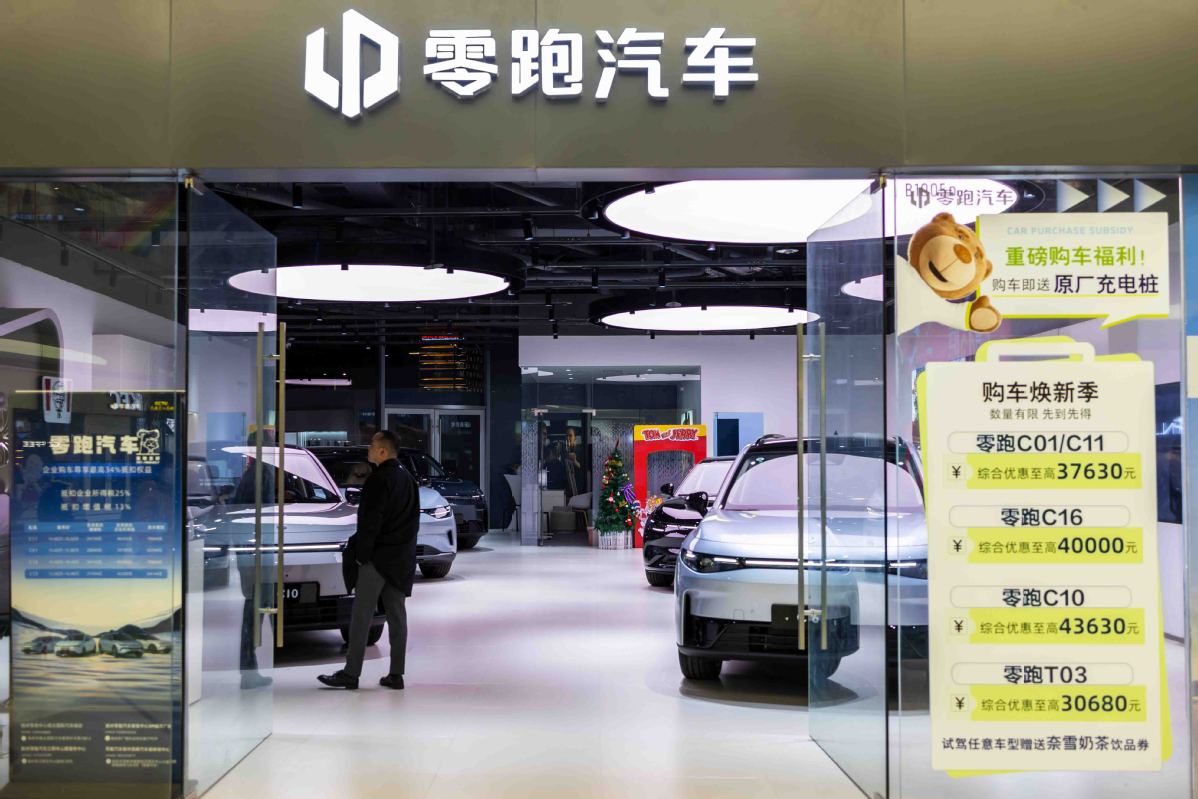China's automakers post record sales figures


The Chinese automotive market sustained its growth momentum as automakers posted record-breaking sales figures for March, with competition notably intensifying in the new energy vehicle sector.
Among NEV startups, Leapmotor claimed the top spot for the first time with deliveries of 37,095 units in March, soaring 154 percent year-on-year. It also set a record for Leapmotor in terms of monthly deliveries.
Its C-series SUVs, offering both range-extended and pure electric options, are the mainstays of its sales. The automaker started pre-sales of its B10 compact SUV in March with intelligent driving features. It is set to hit the market on April 10 and become a new force for Leapmotor's sales growth.
Leapmotor achieved profitability in the fourth quarter of 2024, the second NEV startup after Li Auto, whose March deliveries reached 36,674 units, up 26.5 percent year-on-year.
Xpeng followed with deliveries of 33,205 vehicles in March, marking a 268 percent year-on-year increase — the highest growth among startups. This represents five consecutive months of deliveries surpassing 30,000 vehicles for Xpeng.
The result was driven not only by the strong sales of the Mona M03 and P7+ sedans, but also the 2025 version of G6 and G9 SUVs. It will also launch new G7 and P7 models this year to boost sales.
Xiaomi Auto achieved record sales with more than 29,000 units delivered. It had been a year since the launch of its SU7 sedan, and despite significant market demand, production capacity remains the primary limitation on its delivery volume growth.
But the company faces a crisis as one of its vehicles was involved in a fatal crash when in intelligent driving-assisted mode.
Xiaomi has disclosed details regarding the collision and fire incident, stating that it will continue to cooperate with police. It did not mention concerns from the public regarding issues such as whether the car doors were unable to be opened after the collision.
Nio delivered 15,039 vehicles in March, up 26.7 percent year-on-year, which includes 4,820 units from its sub-brand Onvo.
Due to lower-than-expected sales figures, Onvo CEO Ai Tiecheng announced on Wednesday his resignation from Onvo and Nio as a senior vice-president. Shen Fei, the former head of Nio's energy division, takes over as CEO.
Traditional automakers also saw positive sales in March, especially their NEV brands. BYD once again outperformed its competitors with 377,420 vehicles sold in the month, up 24.8 percent year-on-year.
Among them, its Fang Cheng Bao and Denza brands sold 8,051 and 12,620 units, respectively.
Geely's sales reached 232,177 vehicles in March, a 54 percent year-on-year increase. Its NEV sales amounted to 119,696 units, with pure electric vehicle sales at 86,329 units, jumping 204 percent year-on-year.
Recently upgraded from a series product to a brand, Geely Galaxy sold 90,032 vehicles, soaring 290 percent compared to the same period in 2024. Meanwhile, the Zeekr brand sold 15,422 vehicles, a 19 percent year-on-year growth.
Changan's Deepal delivered 24,371 vehicles in March, up 86.7 percent year-on-year. BAIC's NEV arm, Arcfox, saw sales grow five times to 13,018 units in March. Dongfeng Motor's Voyah brand sold 10,012 NEVs, up 64 percent from 2024.
Great Wall Motors is one of the few that experienced a year-on-year decline. In March, the SUV and pickup maker sold 97,991 vehicles, a decrease of 2.28 percent compared to the same period of 2024.
GWM's Haval brand sold 52,732 vehicles, down by 2.45 percent year-on-year; Ora sold 2,776 vehicles, a 53.9 percent decrease; and the Tank brand sold 17,381 vehicles, down 8.29 percent year-on-year.




































